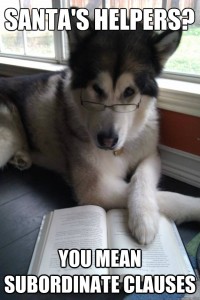John Cook posted a fascinating Richard Feynman quote that made me wonder whether the physicist may have had synaesthesia:
I see some kind of vague showy, wiggling lines — here and there an E and a B written on them somehow, and perhaps some of the lines have arrows on them — an arrow here or there which disappears when I look too closely at it. When I talk about the fields swishing through space, I have a terrible confusion between the symbols I use to describe the objects and the objects themselves. I cannot really make a picture that is even nearly like the true waves.
As it turns out, he probably did:
As I’m talking, I see vague pictures of Bessel functions from Jahnke and Emde’s book, with light-tan j’s, slightly violet-bluish n’s, and dark brown x’s flying around. And I wonder what the hell it must look like to the students.
The letter-color associations in this second quote are a fairly common type of synaesthesia. However, the first quote above sounds quite different, but still plausibly like synaesthesia: “I have a terrible confusion between the symbols I use to describe the objects and the objects themselves”…
I wonder whether many of the semi-mystical genius-heroes of math & physics lore (also, for example, Ramanujan) have had such neurological conditions underpinning their unusually intuitive views of their fields of study.
I love the idea of synaesthesia and am a bit jealous of people who have it. I’m not interested in drug-induced versions but I would love to experiment with other ways of experiencing synthetic synaesthesia myself. Wired Magazine has an article on such attempts, and I think I remember another approach discussed in Oliver Sacks’ book Musicophilia.
I have a friend who sees colors in letters, which helps her to remember names — I’ve heard her think out loud along these lines: “Hmm, so-and-so’s name is kind of reddish-orange, so it must start with P.” I wonder what would happen if she learned a new alphabet, say the Cyrillic alphabet (used in Russian etc.): would she associate the same colors with similar-sounding letters, even if they look different? Or similar-looking ones, even if they sound different? Or, since her current associations were formed long ago, would she never have any color associations at all with the new alphabet?
Also, my sister sees colors when she hears music; next time I see her I ought to ask for more details. (Is the color related to the mood of the song? The key? The instrument? The time she first heard it? etc. Does she see colors when practicing scales too, or just “real” songs?)
Finally, this isn’t quite synaesthesia but another natural superpower in a similar vein, suggesting that language can influence thought:
…unlike English, many languages do not use words like “left” and “right” and instead put everything in terms of cardinal directions, requiring their speakers to say things like “there’s an ant on your south-west leg”. As a result, speakers of such languages are remarkably good at staying oriented (even in unfamiliar places or inside buildings) and perform feats of navigation that seem superhuman to English speakers. In this case, just a few words in a language make a big difference in what cognitive abilities their speakers develop. Certainly next time you plan to get lost in the woods, I recommend bringing along a speaker of Kuuk Thaayorre or Guugu Yimithirr rather than, say, Dutch or English.
The human brain, ladies and gentlemen!


